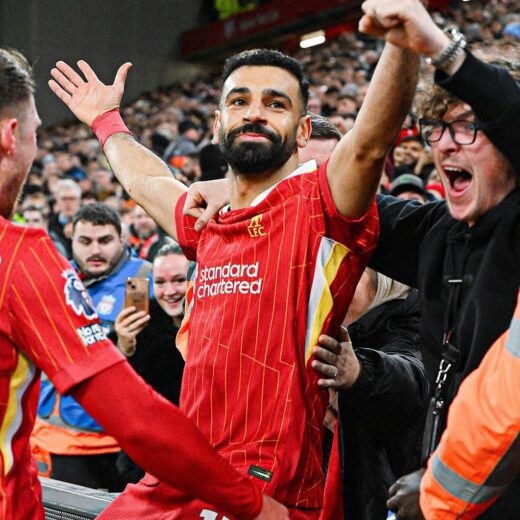Spread the love
Feeling the urge to glug a glass of water shortly after you’ve munched a packet of crisps, bowl of popcorn or handful of peanuts, is a clear sign your snack was on salty side – and that’s not necessarily a bad thing.
“Salt is a necessary requirement to eat – and not for flavour,” says Pippa Hill, nutritionist and founder of The Weight Loss Guru.
Table salt, aka sodium chloride, contains around 40% sodium, an essential nutrient.
“Eaten in a small quantity, sodium helps the conduction of nerve impulses, muscle contraction and relaxation, and helps maintain the balance of water and minerals,” she continues.
“A lack of salt can lead to muscle cramps, nausea, fatigue and light-headedness.”
However, consuming more than the 6g a day recommended by the NHS for adults – equating to around one teaspoon – can be detrimental for your health.
“A high salt intake disrupts the natural sodium balance in the body,” says Olivia Burley, registered associate nutritionist who is currently working on the NHS Diabetes Prevention Programme.
This can result in high blood pressure, she explains: “Hypertension is a condition where blood pressure remains elevated over time, which can increase the risk of heart and circulatory diseases.”
Unless you keep a very close eye on food labels, it’s not always obvious how much salt you’re eating in a day.
“Examples of foods high in salt can be canned fish or poultry, frozen foods such as breaded meats, salted nuts, canned beans, cured meats, soup and sandwiches,” says Hill.
And just because you’ve drunk enough water to quench your thirst doesn’t mean you’re negating the effects of too much salt, which is why it’s important to be aware of other health indicators.
“If you are experiencing any or all these symptoms, it is always best to seek medical advice,” Burley advises.
1. Headaches
The dehydration caused by excess salt intake can lead to severe headaches.
“These headaches tend to be more painful than a mild one, giving a throbbing sensation as the blood vessels are being expanded,” Hill says.
“They tend to come on between an hour or two after you’ve eaten, as sodium levels rise through the body.”
They may come on quicker if you have high blood pressure or suffer from chronic headaches in general, but can often be solved by rehydrating.
“As your water levels are imbalanced, by drinking more water you’re able to minimise and get rid of the headache.”
2. Swollen feet and hands
Also known as edema, swelling of the fingers, ankles or feet can be a delayed reaction to a spike of sodium.
“When too much salt is consumed, the body retains the extra sodium and increases the fluid outside of the cells, Burley explains.
“This causes the kidneys to have reduced function, remove less water and therefore increase blood pressure.”
Swelling may occur more when sitting down for too long or on long journeys.
“This isn’t an instant response after eating, but if in the next 24 hours of having eaten salty foods you notice swelling in these areas, it could be a link,” Hill says.
“It’s best to seek medical advice if this is an ongoing occurrence, as it could be a sign of a more serious health concern.”
3. High blood pressure
“Salt is the largest cause of high blood pressure,” Hill warns. “Within just 30 minutes, eating excess salt will have a bodily reaction to the blood vessels.”
Also called hypertension, if left untreated it can increase your risk of serious problems such as heart attacks and strokes.
Hills says: “If after eating a salty diet, your symptoms include blurred vision, chest pain such as a tight feeling, palpitations, shortness of breath or sudden nosebleeds, it could mean you have a raised blood pressure.”
Burley adds: “Hypertension can often have no symptoms and the only way to know your blood pressure is to get it monitored using a machine.”
4. Frequent urination
“Excessive thirst is a common response to eating salty foods and naturally leads to an increase in fluid consumption, causing excessive urination,” Burley says.
By sending the signal that you need to guzzle lots of liquid, the body aims to remove the excess salt build-up.
“Although drinking more fluids in response to an increase in salt is one of the main reasons for urine production, it could be a symptom of other conditions like polyuria, therefore medical checks are best.”
You may be interested

Vitolo Announces Retirement From Football
Webby - December 22, 2024Former Spain forward Vitolo has announced his retirement from football.The former Atletico Madrid, Las Palmas and Sevilla confirmed his retirement…

La Liga: Iheanacho Missing In Real Madrid, Sevilla’s Six-Goal Thriller
Webby - December 22, 2024Super Eagles forward Kelechi Iheanacho was missing in action as Real Madrid defeated Sevilla 4-2 in Sunday’s La Liga game.Iheanacho…

Salah Makes EPL History In Liverpool’s 6-3 Win Vs Spurs
Webby - December 22, 2024Mohamed Salah was the standout performer as he bagged a brace and also provided two assists, in Liverpool’s 6-3 win…
























![American Pastor, David Wilson Seen Eating The Box Of Woman Who Isn’t His Wife [Video]](https://onlinenigeria.com/wp-content/uploads/2019/10/american-pastor-david-wilson-seen-eating-the-box-of-woman-who-isnt-his-wife-video-150x150.jpg)









